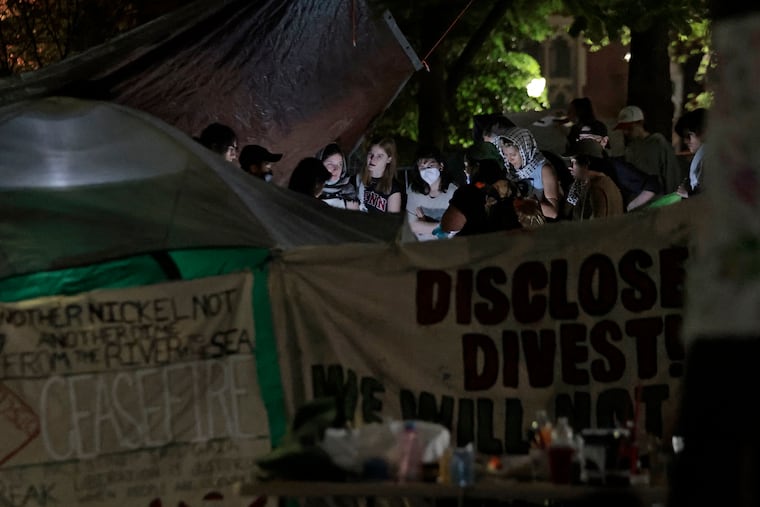Philly DA says he takes ‘very seriously’ the rights of students to protest but will prosecute ‘when arrest is lawful’
Philadelphia District Attorney Larry Krasner said that he would prosecute crimes committed at the encampment but declined to comment on the legality of the encampment itself.

Philadelphia District Attorney Larry Krasner said Monday morning his office was aware of the encampment formed by pro-Palestinian protesters at the University of Pennsylvania and that he takes students’ First Amendment rights to assemble and protest “very seriously.”
“It is part of my sworn oath to uphold the Constitution,” Krasner said at a Monday news conference. “The very First Amendment to the Constitution is about free speech rights and about the opportunity for people to be heard. The opportunity for people to be heard is certainly a much better idea than not to let them be heard and to have them respond in other ways.”
“But having said that, all justice is individual,” he added. “If there is probable cause for a commission of a crime, then there is a basis for charges. And that has always been our North Star ... what are the facts.”
He emphasized that his office would prosecute in cases where legal standards were met.
“When people commit crimes and there is probable cause and the arrest is lawful, we prosecute crimes,” Krasner said.
He stopped short, however, of saying definitively whether he would prosecute students at the encampment charged in connection with violations related to setting up tents without proper permits.
Signs posted around the encampment area at Penn’s College Green said protesters who set up tents were in violation of Philadelphia city code, which prohibits “tents and other structures” from being erected without first obtaining permits. The notice also said the area where protesters have set up are “not zoned for outdoor living accommodations.”
When asked specifically if his office would push to prosecute such charges against students, Krasner declined to comment, instead citing a case currently with the United States Supreme Court that could decide whether cities can punish people for sleeping outside in public space.
“We’re not giving out advisory opinions today on conduct that we can’t even imagine, that might happen in the future,” said Krasner.
“We have all heard of a very long history in this country of local government claiming that everything that was done in the name of free speech was a crime,” he added. “And we have certainly seen the benefits that have come from non-violent peaceful efforts to achieve social change.”